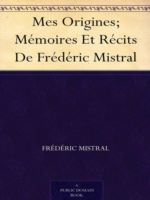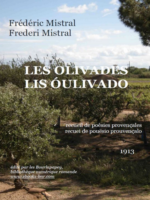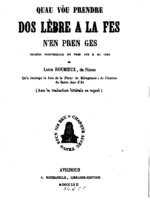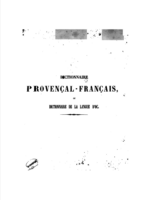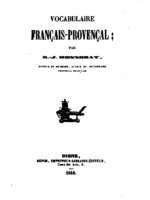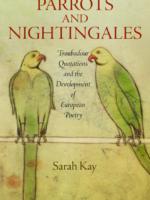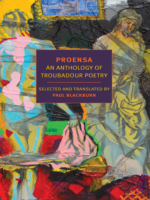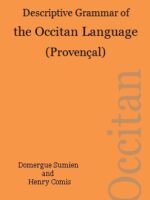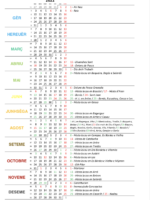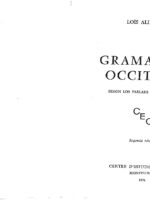Recommended Books
-
-
Parrots and nightingales : troubadour quotations and the development of Europea poetra
0,00 €The love songs of Occitan troubadours inspired a rich body of courtly lyric by poets working in neighboring languages. For Sarah Kay, these poets were nightingales, composing verse that is recognizable yet original. But troubadour poetry also circulated across Europe in a form that is less well known but was more transformative. Writers outside Occitania quoted troubadour songs word for word in their original language, then commented upon these excerpts as linguistic or poetic examples, as guides to conduct, and even as sources of theological insight. If troubadours and their poetic imitators were nightingales, these quotation artists were parrots, and their practices of excerption and repetition brought about changes in poetic subjectivity that would deeply affect the European canon.
The first sustained study of the medieval tradition of troubadour quotation, Parrots and Nightingales examines texts produced along the arc of the northern Mediterranean—from Catalonia through southern France to northern Italy—through the thirteenth century and the first half of the fourteenth. Featuring extensive appendices of over a thousand troubadour passages that have been quoted or anthologized, Parrots and Nightingales traces how quotations influenced the works of grammarians, short story writers, biographers, encyclopedists, and not least, other poets including Dante and Petrarch. Kay explores the instability and fluidity of medieval textuality, revealing how the art of quotation affected the transmission of knowledge and transformed perceptions of desire from the “courtly love” of the Middle Ages to the more learned formulations that emerged in the Renaissance. Parrots and Nightingales deftly restores the medieval tradition of lyric quotation to visibility, persuasively arguing for its originality and influence as a literary strategy.
-
Proensa: An Anthology of Troubadour Poetry
0,00 €It was out of medieval Provence – Proensa – that the ethos of courtly love emerged, and it was in the poetry of the Provençal troubadours that it found its perfect expression. Their poetry was also a central inspiration for Dante and his Italian contemporaries, propagators of the modern vernacular lyric, and seven centuries later it was no less important to the modernist Ezra Pound. These poems, a source to which poetry has returned again and again in search of renewal, are subtle, startling, earthy, erotic, and supremely musical.
The poet Paul Blackburn studied and translated the troubadours for twenty years, and the result of that long commitment is ‘Proensa’, an anthology of thirty poets of the eleventh through thirteenth centuries, which has since established itself not only as a powerful and faithful work of translation but as a work of poetry in its own right. Blackburn’s ‘Proensa’, George Economou writes, “will take its place among Gavin Douglas’ ‘Aeneid’, Golding’s ‘Metamorphoses’, the Homer of Chapman, Pope, and Lattimore, Waley’s Japanese, and Pound’s Chinese, Italian, and Old English.”
-
Descriptive Grammar of the Occitan Language (Provençal)
0,00 €Like Old French, from the 9th to the 13th century, Old Occitan preserved the two-case system of Vulgar Latin, subjective and objective, and it seems that until the middle of the 12th century, the written and spoken languages were identical. Then, the distinction between the cases disappeared in spoken usage, though they still persisted in the written texts of the Trobadors. This period can be qualified as the Golden Age or the time of the Trobadors.
A second period ranges from the beginning of the 14th century to the middle of the 16th. It is characterized by the dropping altogether of the flexions in witten texts, by the beginning of dialectization, the dropping of courteous vocabulary and the use of learned words borrowed from Latin and Greek to express law, medecine, philosophy and theology. Occitan was no longer a literary language, but it was used to write the deeds, the accounts, the chronicles and the resolutions of local communities. Since the second half of the 16th century to our days, Occitan was banned from written documents, and reduced to oral usage only, mainly by country and working people, in their everyday life, at work or at home.



